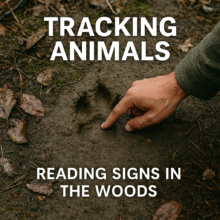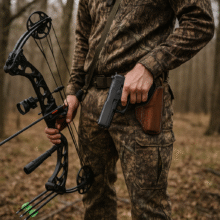How to Survive an Alligator Attack: Essential Safety Tips

Table of Contents
- Introduction
- 1. Avoiding Alligator Encounters
- 2. Prevention is Key
- 3. Recognizing Warning Signs
- 4. If You Encounter an Alligator
- 5. After an Encounter
- 6. Educating Yourself and Others
- 7. Safe Fishing Practices
- 8. Camping Near Alligator Habitats
- 9. Handling an Injured Alligator
- 10. Advocating for Alligator Conservation
- Conclusion
- Frequently Asked Questions (FAQs)
Introduction
Alligator encounters, while rare, can be dangerous if not handled properly. Whether you’re living in or visiting areas where alligators are native, understanding how to minimize risks and react during an encounter can be life-saving. Here’s a comprehensive guide on how to survive an alligator attack.
1. Avoiding Alligator Encounters
1.1 Be Aware of Your Environment
- Know Their Habitat: Alligators can be found in freshwater environments like ponds, marshes, and rivers. Always be vigilant when you are near these areas.
1.2 Avoid Water Edges
- Stay Clear of Water: Alligators are ambush predators that can attack near the water’s edge. Avoid lingering at the shores of bodies of water and do not swim outside of designated swimming areas.
2. Prevention is Key
2.1 Do Not Feed Alligators
- Avoid Attracting Attention: Feeding alligators can cause them to associate humans with food, increasing the danger of future encounters. It’s illegal in many places because it is so hazardous.
2.2 Keep Pets and Children Away
- Extra Precaution: Keep pets on leashes and away from the water’s edge, and watch children closely when they are near water.
3. Recognizing Warning Signs
3.1 Alligator Behavior
- Warning Signs: An alligator may hiss or open its mouth as a warning if you are too close. Recognizing these signs can give you time to back away safely.
4. If You Encounter an Alligator
4.1 Do Not Run Away
- Walk Backwards Slowly: If you spot an alligator, do not turn your back or run. Alligators can run very fast over short distances. Instead, slowly back away until you are a safe distance from the alligator.
4.2 If Attacked, Fight Back
- Target Sensitive Areas: If an alligator makes contact, fight back by hitting or poking it in the eyes or snout. These are sensitive areas, and your resistance might make the alligator release you and retreat.
5. After an Encounter
5.1 Seek Immediate Medical Attention
- Treat Injuries: Alligator bites can cause serious injuries and infections. Even minor injuries should be treated by a healthcare professional as soon as possible.
5.2 Report the Encounter
- Inform Authorities: Always report any aggressive alligator encounters to wildlife officials. This helps manage potentially dangerous animals and prevent future incidents.
6. Educating Yourself and Others
6.1 Learning About Alligator Biology and Behavior
- Understanding Alligators: Educate yourself about alligator biology, behavior, and ecology. Knowing how these animals behave and react in their natural habitat can help you make informed decisions when you’re in or near their environments.
6.2 Community Education
- Spreading Knowledge: Share knowledge about alligator safety with family, friends, and community members, especially those new to areas where alligators are common. Community education can dramatically reduce the likelihood of dangerous encounters.
7. Safe Fishing Practices
7.1 Be Cautious When Fishing
- Avoid Attracting Alligators: Be mindful when cleaning fish or disposing of fish remains. Alligators are attracted to easy food sources. Dispose of fish scraps in designated disposal sites, not in the water.
7.2 Use Elevated Platforms
- Elevated Fishing Locations: When possible, fish from piers or other elevated structures. These locations can reduce the risk of encountering alligators while fishing near their habitats.
8. Camping Near Alligator Habitats
8.1 Campsite Selection
- Choose Safe Locations: When camping near bodies of water known to host alligators, select campsites at a safe distance from the water’s edge. Avoid areas with signs of alligator activity such as slides or tracks.
8.2 Secure Food and Garbage
- Avoid Attracting Wildlife: Secure food and garbage at night or when not attended. Unsecured food can attract alligators and other wildlife to your campsite.
9. Handling an Injured Alligator
9.1 Do Not Approach
- Safety First: Never attempt to approach or handle an injured alligator. An injured animal can be unpredictable and more dangerous.
- Professional Assistance: If you encounter an injured alligator, contact local wildlife authorities. Trained professionals can handle the situation more safely and appropriately.
10. Advocating for Alligator Conservation
10.1 Support Conservation Efforts
- Promoting Healthy Populations: Support local and national conservation efforts that aim to preserve alligator habitats and maintain healthy alligator populations. Healthy ecosystems contribute to natural alligator behavior, reducing negative interactions with humans.
10.2 Participate in Conservation Programs
- Active Involvement: Participate in programs that protect alligator habitats or promote human-wildlife coexistence. Your involvement can make a significant difference in the management and conservation of these powerful creatures.
Conclusion
Understanding how to avoid and react to alligator encounters is crucial for anyone living in or visiting their habitats. By taking preventive measures and knowing how to react during an encounter, you can greatly increase your chances of safely coexisting with these ancient reptiles.
Frequently Asked Questions (FAQs)
What time of day are alligators most active?
- Alligators are typically most active between dusk and dawn, so it is best to avoid being near water during these times.
Can alligators climb fences or walls?
- Alligators are poor climbers, but they can reach up if the barrier is too low. Ensure that fences around bodies of water are at least 4-5 feet high with no substantial gaps at the bottom.
Is it safe to swim in waters where alligators live?
- Swimming in designated swimming areas during daylight hours is generally safe. Always adhere to local wildlife advisories and avoid swimming in areas known to have large alligator populations.
How do I teach children about alligator safety?
- Educate children about the importance of keeping a distance from all water bodies in alligator territories, never feeding wildlife, and always having an adult present. Interactive educational tools, such as books and videos, can also help make the learning process engaging and effective.
What should I do if an alligator approaches my boat?
- Remain calm, keep your limbs inside the boat, and slowly move away from the alligator if possible. Do not attempt to touch or feed the alligator, as this can provoke aggressive behavior.
Can alligators recognize human behavior?
- Alligators may become accustomed to human presence, especially if they are regularly fed by people. This can lead them to associate humans with food, potentially leading to more aggressive behavior. Always maintain a safe and respectful distance to discourage this association.







